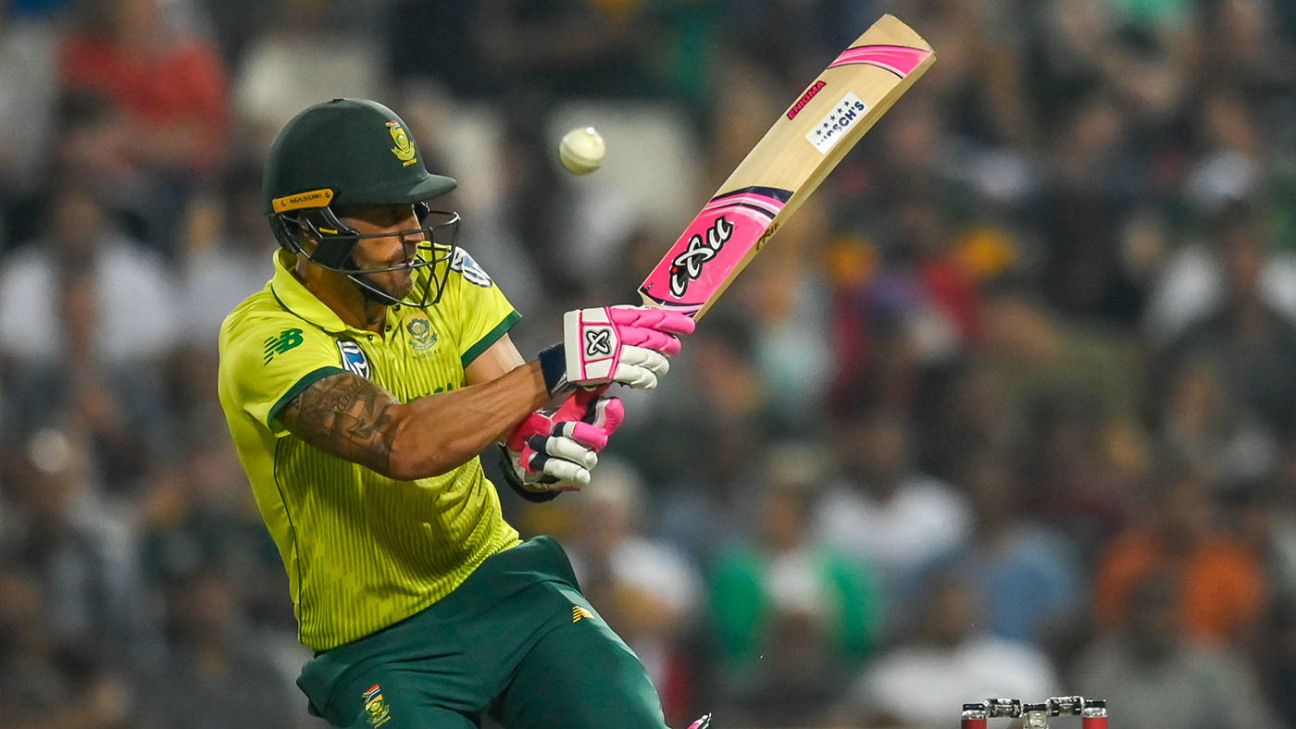
South Africa players who want to be considered for the T20 World Cup have the chance to stake a claim in the next week, with several spots in need of filling, according to coach Mark Boucher. Despite the disappointment of his team's biggest T20 defeat in the opening match against Australia, Boucher sought to "take the emotion out of the whole scenario" and look at the bigger picture, with seven months to go before a major tournament.
"There are certain places up for grabs and with guys getting opportunities, it's important that they take them now," Boucher said. "A month or so before the World Cup we want to have our minds on who we want to take as a 15-man squad but it's difficult for players to make a name for themselves a month before the tournament. Now is the time that players need to put their hands up and stake a claim for positions and there are still position up for grabs. We don't quite know what our combinations are going to be and we are waiting for guys to step up."
After their performance on Friday night, which included their lowest T20I score, and Boucher's criticism of the bowling as "poor", it would appear that South Africa have plenty of positions to fill but the man in charge did not want to be overly dramatic. "It's not the end of the world - losing one game of T20 cricket," Boucher said. "Yes, we are going to have to shape up quite a bit in the next week but there is also a plan going through to the next World Cup."
ALSO READ: Jadeja-inspired Agar felt 'horrible' in training
Part of that plan was trialing Temba Bavuma in the opening role, which was a success against England before he got injured, using Heinrich Klaasen - who was also forced out with a niggle - in the middle order and experimenting with Rassie van der Dussen and Jon-Jon Smuts. All those options paid off during the England series and are likely to do so again.
A bigger concern is the inconsistency of the attack, who had the experience of Dale Steyn and Kagiso Rabada but still conceded heavily. Steyn, Lungi Ngidi, Rabada and Andile Phehlulwayo, who have 107 T20 caps between them, gave away 70 runs in the first six overs and failed to pitch the ball up, something bowling coach Charl Langeveldt discussed in the lead-up to the match. Both Boucher and Langeveldt have spoken about the importance of specialised skills training, but stressed that during a series, South Africa don't have the time to do that.
Boucher made the same point after the Wanderers defeat. "It's not something we can change overnight. We've tried to work on things like yorkers but our lines and length were really bad," Boucher said. "It's not like they were running down the wicket and taking us on. We were giving them boundary options."
Rabada, South Africa's "poster boy", as acting director of cricket Graeme Smith called him, was the most guilty and had six fours and two sixes scored off him to finish as the most expensive bowler on the night. Boucher put Rabada's showing down to a lack of game time, presenting an interesting conundrum between getting the balance between overbowling and keeping him fresh. "KG has come back from a long rest so it's no use making an emotional decision and saying we are going to leave him out for the next game," Boucher said. "We need guys like him and Anrich [Nortje] to come back but we also needed to rest them and that was the right decision because we want them fresh."
But how long does it take players to find their groove again? The answer might come on Sunday, when South Africa face a must-win situation to stay in the series or face further scrutiny over their progress in what has been a lean summer. As he done since he took over in December, Boucher pleaded for patience, even as he admitted that progress needs to come.
"We are working really hard off the field. We understand the areas we need to work on. We've got to get back on the horse," he said. "If we rock up and play 40% cricket we are going to get beaten and beaten badly, like we were today."















 Phone: (800) 737. 6040
Phone: (800) 737. 6040 Fax: (800) 825 5558
Fax: (800) 825 5558 Website:
Website:  Email:
Email: 






